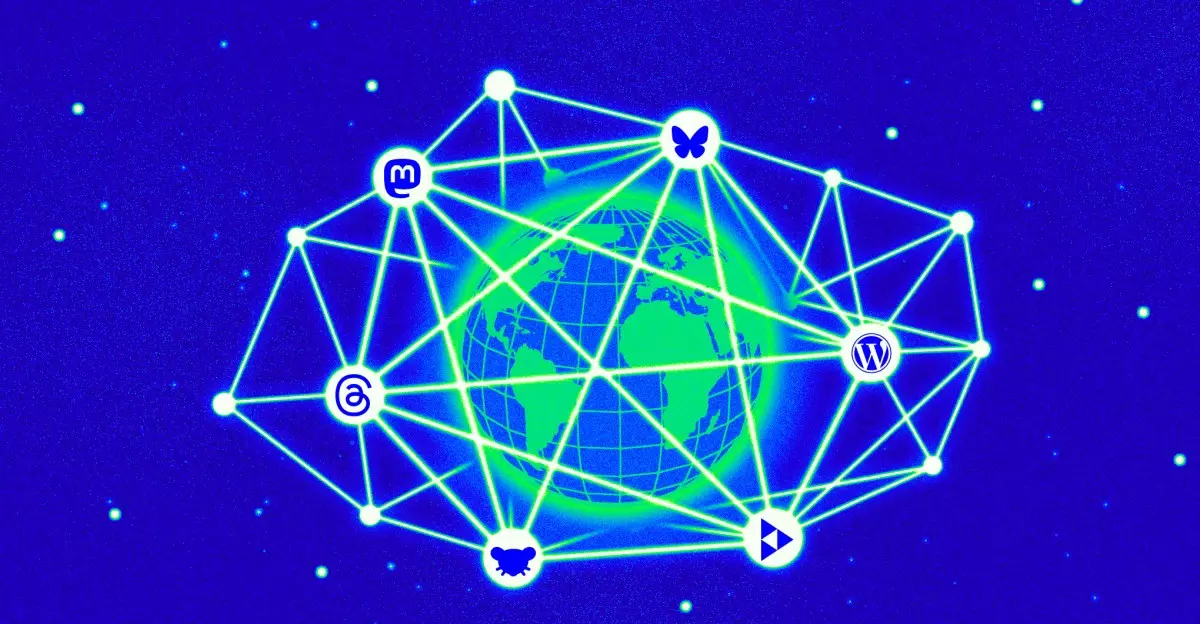In an era where online community engagement is often compromised by corporate control and advertising algorithms, a new wave of decentralized social media platforms is emerging, promising to reshape the landscape of digital interaction. The recent FediForum conference showcased several innovative applications, including Bonfire Social, Channel.org, and Bounce, which are not merely alternatives to traditional social platforms; they represent a profound shift in how we conceive the mechanics of online community-building and content curation. The emphasis is on user autonomy and tailored experiences—elements that have been overlooked by mainstream services that prioritize profit margins over genuine user experience.
Bonfire Social: Crafting Communities
Bonfire Social stands as a beacon for those eager to engage in dynamic digital communities that reflect their governance styles and preferences. Unlike conventional social media platforms that often adopt a one-size-fits-all approach, Bonfire Social offers a customizable framework that allows users to establish distinct micro-communities. The platform’s release of Bonfire Social 1.0, complete with features such as personalized feeds, user-defined profiles, and threaded discussions, addresses the critical need for user agency in online spaces. By federating with existing platforms like Mastodon and Peertube, Bonfire demonstrates a commitment to interoperability and collaboration within the decentralized web.
Moreover, plans for additional “flavors” like Bonfire Community and Open Science highlight the service’s versatility, catering to specific interest groups and academic circles, respectively. This kind of adaptability is essential for fostering engaging, relevant dialogues in an increasingly fragmented digital landscape. The emphasis on user governance within Bonfire Social’s framework is particularly noteworthy, as it grants users the power to dictate the nature of their interactions, making it a compelling alternative for those fatigued by the homogenization prevalent in many social media platforms.
Channel.org: Curating Your Digital Experience
Meanwhile, Channel.org is breaking new ground in the realm of content curation. The platform’s ability to allow users to tailor their feeds based on specific interests, such as hashtags or favored accounts, gives them a level of control that has historically been missing from social media experiences. The integration of various channels across the Fediverse, Bluesky, and even RSS feeds indicates a forward-thinking approach that encourages users to create a rich tapestry of custom content.
One of the standout features is the ability to mute unwanted accounts and filter out undesirable keywords, effectively allowing users to shield themselves from divisive content that can mar their social media experience. This attention to user comfort and content relevance signifies a shift toward mindfulness in social networking—something that is increasingly pertinent in a world inundated with noise and negativity. As Channel.org continues its journey through invitation-only beta testing, it has the potential to cultivate an engaged and conscientious community that values quality over quantity.
Bounce: Bridging Platforms Effortlessly
Adding yet another layer to the decentralized social media experience, Bounce emerges as a solution for those looking to transition from Bluesky to Mastodon without losing their follower base. The ability to connect these two platforms seamlessly not only alleviates the stress of starting over but emphasizes the interconnectedness that decentralized platforms are striving for. As social media users become increasingly aware of privacy issues and corporate malfeasance, tools like Bounce could serve as vital lifelines, enabling smoother transitions across different ecosystems.
The innovation behind Bounce, developed by A New Social, epitomizes the collaborative spirit of the decentralized web. By repurposing Bridgy Fed to streamline this transition process, Bounce stands at the forefront of simplifying user experiences while preserving their social connections, reinforcing the idea that a decentralized network is not only about innovation but also about nurturing relationships.
Looking Ahead: The Impact of Decentralized Innovation
As these pioneering applications take their place in the digital ecosystem, it becomes increasingly clear that the future of social networking lies in cutting-edge technologies that empower users rather than exploit them. Platforms like Bonfire Social, Channel.org, and Bounce collectively illustrate the potential for a richer, more meaningful online social experience—one that champions individual preferences, fosters community ties, and emphasizes ethical engagement.
This new wave of development reflects a broader societal shift toward autonomy and self-governance in online spaces. As users become more conscious of their digital footprints and the influence of big tech, embracing these innovations will allow for a more resilient and user-centric future, where social media serves as a tool for genuine connection and collaborative discourse.


Leave a Reply